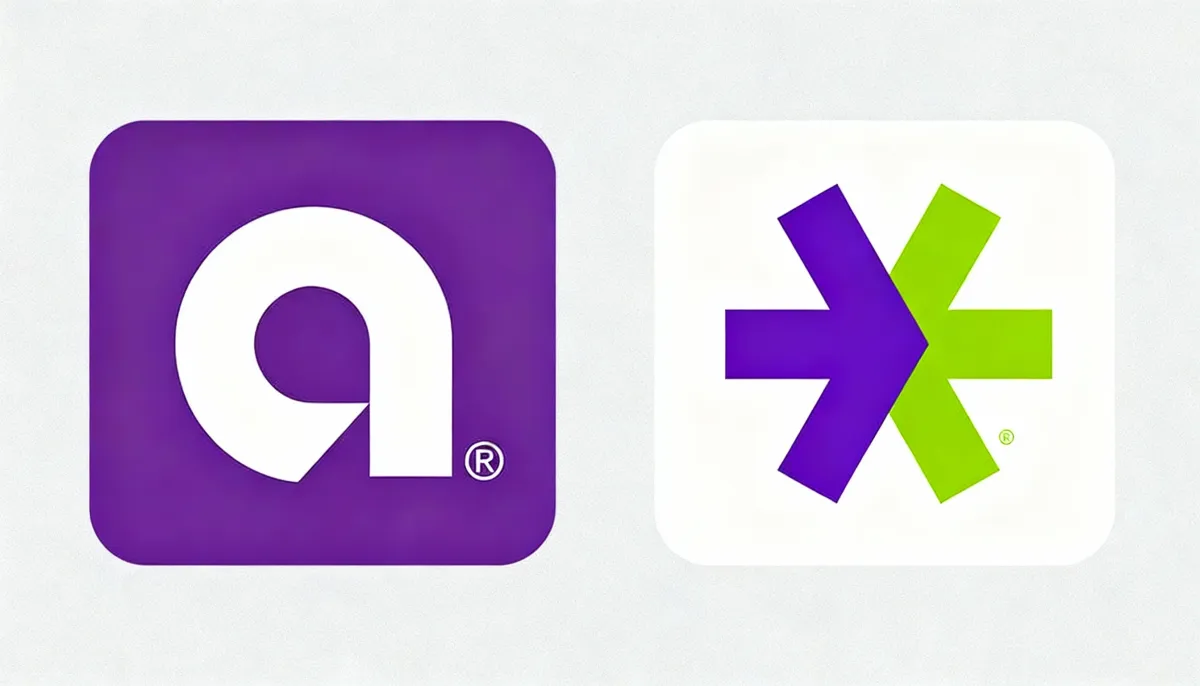The "all-in-one" financial platform is the new gold standard for convenience. Managing your checking, savings, and investment accounts under one login simplifies budgeting, speeds up transfers, and makes tracking your total net worth straightforward.
E*TRADE (owned by Morgan Stanley) and Ally Invest (part of Ally Bank) are the two titans that successfully combine a full-service broker with a functional, high-yield bank.
For a beginner, the decision between them is a trade-off: Ally offers the best core banking product, while E*TRADE offers the best active trading tools. The platform you choose depends on whether you prioritize savings or trading.
The Integration Test (Seamlessness)
The main appeal of either platform is the seamless movement of money. Both E*TRADE and Ally excel here.
Universal Account Management
Both companies offer a "universal account" experience. With a single login, you can instantly see your high-yield savings balance, your checking account, and your investment portfolio. Transferring money between your checking account and your brokerage account is instantaneous and fee-free.
The Banking Difference
While E*TRADE offers a Max-Rate Checking account and a Premium Savings account, Ally Bank is the established leader in high-yield online banking.
- Ally Bank's Superiority: Ally's core banking product includes features like Savings Buckets (allowing you to divide your savings for multiple goals) and a consistently top-tier APY on its high-yield savings account. Ally is designed first and foremost to help you save money.
- E*TRADE's Offering: E*TRADE's checking and savings are competitive, but often require higher minimum balances (up to $5,000 for their Max-Rate Checking) to waive fees or earn the top rates.
Integration Verdict: Both platforms are excellent at moving money instantly, but Ally has the stronger, more feature-rich core banking product for savings and organization.
The Brokerage Showdown
When comparing the investment side of these two platforms, a major difference emerges that makes one less appealing to the typical small-account beginner.
E*TRADE's Strength: Active Trading
E*TRADE shines for the active investor. Their Power E*TRADE platform is highly rated for its charting tools, technical analysis, and advanced options trading features. They offer a deep suite of research and analysis tools (like expert market commentary) that rivals industry leaders.
- The Downside: The Fractional Share Barrier: A significant issue for a beginner is E*TRADE's lack of support for fractional shares. This forces a beginner to save enough cash to buy an expensive stock or ETF one whole share at a time, which complicates the crucial practice of Dollar-Cost Averaging (DCA).
Ally Invest's Strength: Cost and Passive Appeal
Ally Invest offers simple, commission-free trading with a low barrier to entry.
- Low Options Fees: Ally is notable for offering a lower per-contract fee on options contracts than many competitors ($0.50 per contract vs. E*TRADE's standard $0.65).
- Robo-Advisor: Ally offers a robo-advisor solution for investors who want a hands-off, managed portfolio.
- The Downside: Ally's trading platform is considered basic compared to Power E*TRADE. It lacks the advanced research and charting tools needed by sophisticated traders.
Brokerage Verdict: E*TRADE has the better, more powerful trading platform. However, the lack of fractional shares is a major dealbreaker for a beginner investor with less than $5,000 who needs to invest every dollar immediately.
Cash Management and ATM Access
For all-in-one customers, access to your cash is paramount.
Ally's ATM Policy
Ally Bank offers extensive ATM fee reimbursement (up to $10 per month) for out-of-network ATMs. This is a huge perk for a customer who never visits a physical branch but still needs cash access.
E*TRADE's Banking Tiers
E*TRADE offers the Max-Rate Checking account, which provides worldwide ATM fee refunds. However, to get this, the account usually requires a minimum average monthly balance (often $5,000) or other activities to waive the monthly fee.
Summary: Ally's generous ATM reimbursement is easier for the average beginner to qualify for without having to maintain a large minimum balance.
Final Verdict: Who Wins the Integration Battle?
The winner depends entirely on your primary financial need:
- Choose Ally Invest if: Your focus is on saving, budgeting, and simple, passive investing. Ally's superior high-yield savings account, its 'Buckets' feature, and its easy fee structure make it the better core financial platform for a beginner who values saving over trading.
- Choose E*TRADE if: Your focus is on active trading, options, and advanced charting. E*TRADE's powerful trading tools and research make it the better platform for the beginner who is serious about quickly becoming an advanced trader.
For most beginners, Ally Invest offers the more useful and less complicated combined banking and investment experience, making it the overall winner for the "all-in-one" customer.

